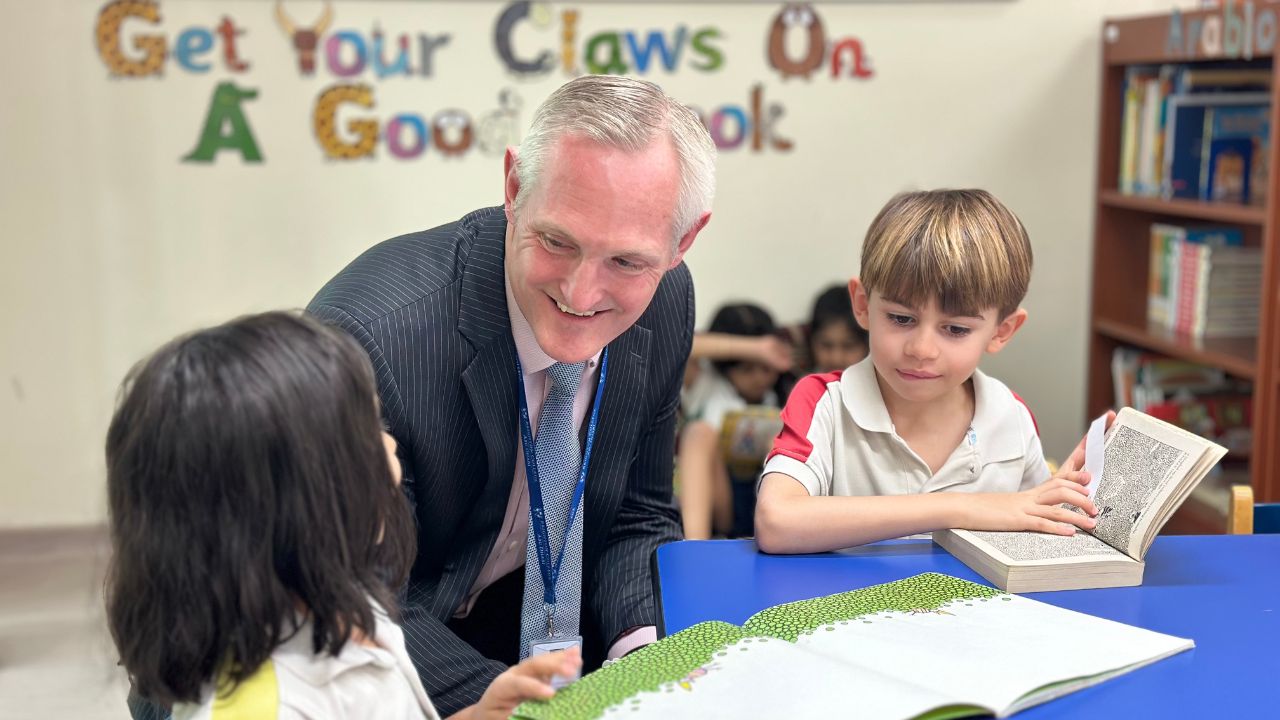
Barney Durrant, Head Master at Brighton College Abu Dhabi, shares why wellbeing is the foundation of every child’s success
As a Head Master – and as a father – one of the key questions I have always asked myself when considering any school is: “Will my children be happy and thrive here?”
That may sound simplistic. As an educator, I value academic rigour, intellectual stretch, and ambition. However, in my experience, children achieve their best only when they feel known, supported, and safe. In other words, when they are happy.
This does not happen by chance. To genuinely develop happy and confident young people, schools must embed a deep and consistent culture of pastoral care, where a clearly thought-out programme of social and emotional learning is in place, and this must run through every aspect of school life.
Happy, supported—and ready to succeed
Across the globe, and especially in forward-thinking education systems like the UAE’s, this whole-school approach is increasingly seen not as a ‘nice to have’ but as a critical driver of pupil success.
The explicit teaching of values, including respect and compassion, is vital to developing empathetic learners with the skills necessary to thrive in the 21st-century marketplace.
Schools should not just be places where we learn subjects but also places to learn about our position within global society, explore different cultures and customs, and understand differences while connecting and collaborating with others. These are not secondary skills – they are foundational.
The evidence is clear
A 2023 study by the OECD found that pupils with high levels of social and emotional skills achieve better grades and have higher aspirations for their future, especially in areas such as reading, maths, and the arts, while also reporting stronger attendance and behavioural outcomes.
They provide opportunities for our pupils to develop tolerance and understand diversity. With an explicit emphasis on wellbeing and positive relationships, our children develop emotional intelligence and a strong sense of community.
I want my children to grow up to become leaders in whatever field they choose, but to do that, they will need to be collaborative, thoughtful, resilient, and open-minded.
These are all skills that can be taught and developed when a school has the desire, courage, and commitment to prioritise them.
The Abu Dhabi Department of Education and Knowledge (ADEK) echoes this priority through its ‘Irtiqaa’ Inspection programme.
Schools are evaluated not only on academic performance but on how effectively they safeguard and promote pupil wellbeing, safety and personal development, recognising that these elements are essential to pupil success.
The opposite is also true. No school ever condones bullying, but in the absence of a robust pastoral framework, these behaviours can go unnoticed or unaddressed.
When schools don’t prioritise emotional wellbeing, pupils are more likely to feel disconnected, unsafe, or overlooked – and the effects are measurable.
You might like: The Yalla 100 StandOut UAE Schools Guide
The UAE leading by example
ADEK has adopted a proactive approach to combat bullying in both public and private schools.
This includes launching the ‘Best Anti-Bullying Program Award’, which recognises schools that demonstrate impactful, measurable anti-bullying initiatives involving pupils, staff, parents, and the broader community.
ADEK also collaborates with national initiatives, such as the Ministry of Education’s ‘National Bullying Prevention Week’, and actively promotes stakeholder engagement, conflict resolution, and a culture of kindness and inclusion within school environments.
These efforts reflect a broader commitment to ensuring that wellbeing and safety are integral to the educational experience.
Furthermore, when children feel a sense of belonging in school and are happy, settled, and valued, their confidence, self-esteem, and engagement will grow. They are more inclined to try new things and are more likely to engage in extracurriculars.
Not only do these experiences build character, but they also directly improve outcomes.
Research in the UAE shows that pupils who participate in co-curricular and sports programmes often achieve higher academic results and show stronger attendance and engagement.
Academic results start with wellbeing
I often hear parents discussing how they want an ‘academic school,’ and while they are sure that the pastoral side is important, they primarily want their children to achieve good results.
The reality is that the two are inextricably linked, and schools that actively promote and develop wellbeing amongst their pupils will deliver better results for those pupils.
A genuinely holistic education, therefore – one that places equal weight on academic rigour and emotional development – will nurture children with greater emotional balance, fewer attention or behavioural challenges, and more positive friendships.
It equips them with the skills necessary to thrive in the modern workplace and gives them the greatest opportunity to achieve their personal best in all that they do.
Everything else flows from that: from developing children who are happy, secure, and confident.
That is what I want for my own children and what I will continue to reinforce and celebrate in our school community.
Follow Yalla for all the latest education news

